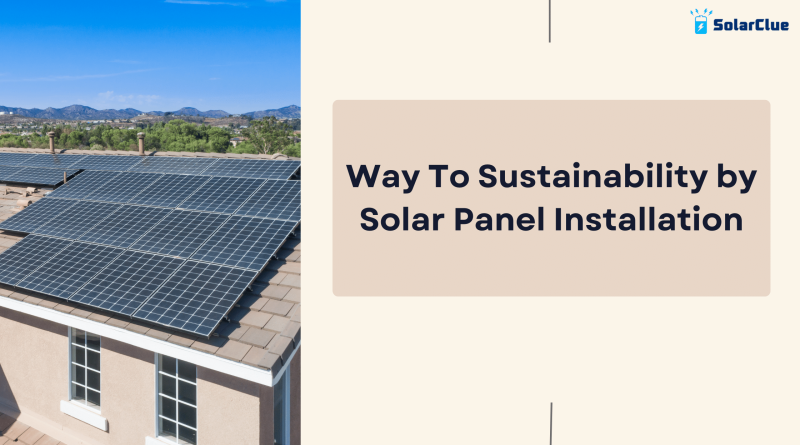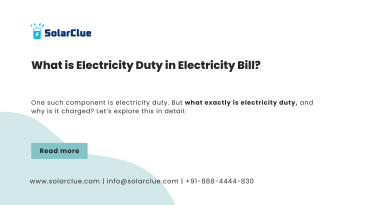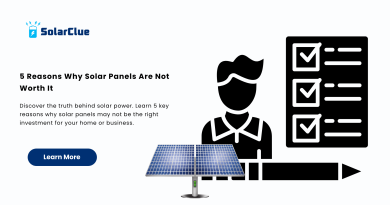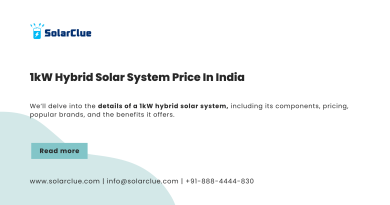Sustainable Solar Panel Installation Cost
Solar energy has gained immense popularity in recent years as a sustainable and cost-effective alternative to traditional electricity sources. If you’re considering investing in solar panels for your home or business, one of the most important factors to consider is the cost. In this blog post, we will delve into the various aspects of solar panel installation costs, including the factors that influence pricing and what you can expect to pay for this renewable energy solution.
Table of Contents
Factors Influencing Solar Panel Installation Costs
Several factors can influence the cost of solar panel installation. Understanding these factors is essential when evaluating quotes and determining your budget for this investment. Let’s explore the key considerations:
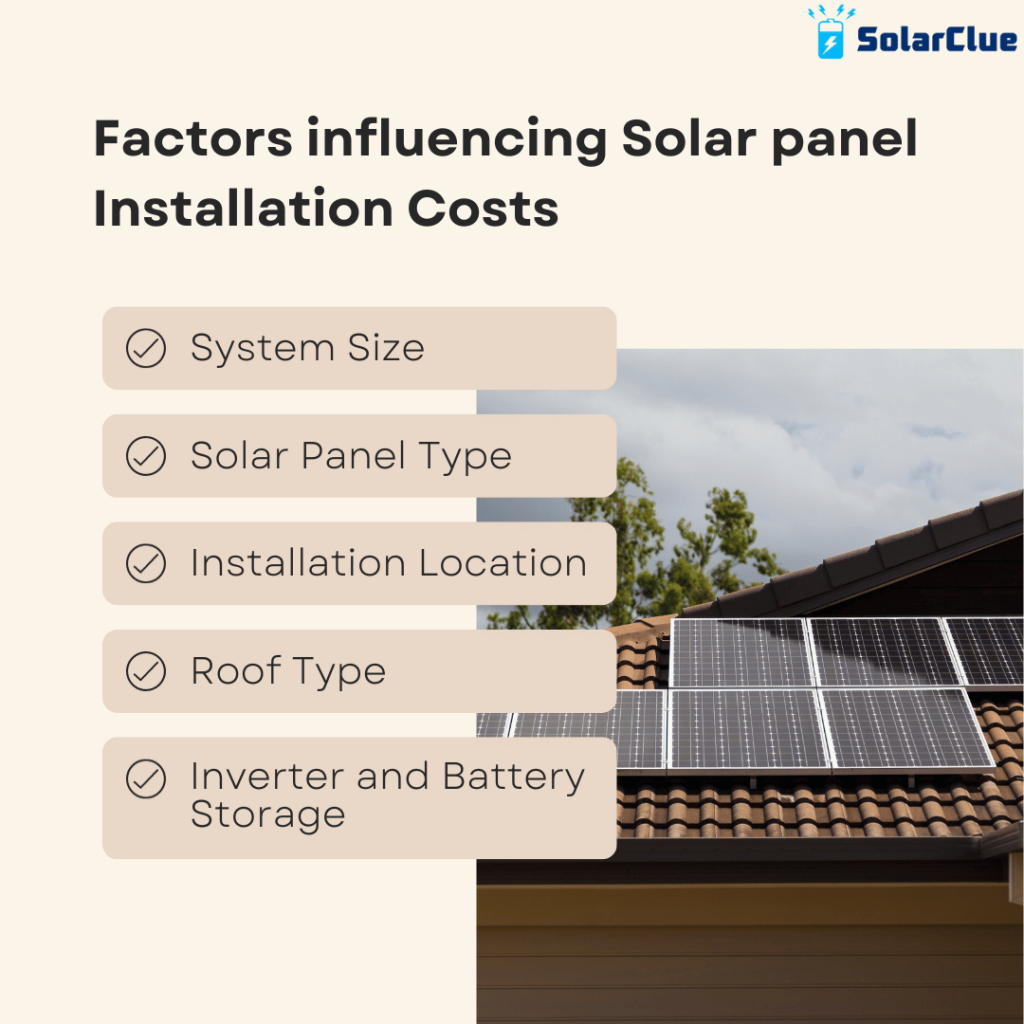
1. System Size
The size of the solar panel system you choose will have a significant impact on the overall cost. Larger systems generally require more panels, which leads to higher installation costs. However, larger systems also offer greater energy generation potential, which can offset the initial investment over time.
2. Solar Panel Type
There are various types of solar panels available, including monocrystalline, polycrystalline, and thin-film options. Each type has its own unique characteristics and price range. Monocrystalline panels, for example, tend to be more expensive but offer higher efficiency and a sleeker aesthetic. Polycrystalline panels, on the other hand, are more affordable but may have slightly lower efficiency. Thin-film panels are the least expensive but typically have the lowest efficiency.
3. Installation Location
The location where you plan to install the solar panels can also affect the cost. Factors such as local labor rates, permitting requirements, and grid connection fees vary from one area to another. Additionally, the amount of sunlight your location receives throughout the year will impact the efficiency and output of your solar panels.
4. Roof Type and Condition
The type and condition of your roof can also impact the installation cost. If you have a flat roof, installation might be simpler and less costly compared to a sloped or tiled roof. Additionally, if your roof requires repair or reinforcement before installation, extra expenses may be incurred.
5. Inverter and Battery Storage
Inverter systems are necessary to convert the energy captured by solar panels into usable electricity. The cost of inverters can vary based on their capacity and efficiency. Similarly, if you opt for battery storage to store excess energy for later use, this can add to the overall installation cost.
Understanding the Average Cost
Understanding the cost of solar panel installation is crucial for setting realistic expectations, it’s pertinent to note regional variations and system specifications. The average cost of installing a residential solar panel system in India ranges from ₹1,00,000 to ₹ 5,00,000. This cost encompasses equipment, labor, permits, and other associated expenses. It’s important to be aware that these figures may vary based on specific regional factors and the unique specifications of the solar system in the Indian market.
Financial Incentives and Return on Investment
Although the initial investment in solar panel installation may seem substantial, there are various financial incentives and long-term benefits that can significantly offset the cost.
1. Solar Incentives in India
In India, the government, both at the central and state levels, offers a variety of incentives to promote the adoption of solar power. These include tax credits, grants, subsidies, and rebates. Tax credits provide direct reductions in income tax, while grants and subsidies offset initial installation costs. Rebates offer partial refunds for solar equipment expenses. These incentives play a crucial role in encouraging the widespread shift to solar energy, making it more financially attractive for individuals and businesses. Stay informed about evolving government policies for the latest incentive updates.
2. Net Metering
Net metering is a program provided by numerous utility companies, enabling solar panel owners to sell surplus electricity back to the grid. This initiative can lead to significant savings over time, with the potential to even eliminate your electricity bill. Through net metering, the excess energy generated by your solar panels is fed back into the grid, and you receive credits or compensation for the electricity supplied. This not only promotes sustainable energy practices but also offers a practical and cost-effective way for individuals to benefit from their solar investments.
3. Return on Investment
Despite the upfront costs, investing in solar panel installation proves to be a financially sound decision with a strong return on investment (ROI) over the long term. The prospect of reduced or eliminated electricity bills allows homeowners to recover their initial investment within a few years, and they can continue to enjoy substantial savings on energy costs for decades. The long-lasting benefits of solar power not only contribute to environmental sustainability but also offer a compelling economic incentive, making it a wise and increasingly popular choice for individuals looking to make a sustainable and cost-effective investment in their homes.
Conclusion
In conclusion, the cost of solar panel installation is influenced by various factors such as system size, panel type, location, roof type, and additional equipment like inverters or batteries. Despite these variables, the availability of financial incentives and the promise of long-term savings on electricity bills make solar panel installation an increasingly appealing option for both individuals and businesses.
Prior to embarking on the renewable energy journey, it’s crucial to gather multiple quotes, assess regional incentives, and carefully consider the specific requirements and potential returns for your property. This diligence ensures an informed decision-making process, allowing you to invest in a solar panel system that aligns with your energy needs and contributes to a sustainable future. Partnering with trusted providers such as Solarclue® can further enhance the reliability and efficiency of your solar investment.
Frequently Asked Questions
The cost of installation can vary based on factors such as system size, panel type, location, roof type, and the inclusion of additional equipment like inverters or batteries.
Yes, various financial incentives, including tax credits, grants, and rebates, may be available at both the central and state levels to make solar installation more affordable.
The payback period depends on factors like energy consumption, regional sunlight availability, and the size of the solar installation. Generally, homeowners can recoup their investment within a few years.
In many cases, solar panel installations can substantially reduce or even eliminate electricity bills, depending on the size of the system and the energy needs of the property.
The need for additional equipment varies based on individual preferences and requirements. Inverters and batteries can enhance energy storage and usage flexibility but may incur additional costs.
Determining the appropriate system size involves assessing your energy needs, available roof space, and regional sunlight conditions. Consulting with a solar professional can help in making an informed decision.
Regional incentives, including state and local programs, can significantly reduce the upfront costs of solar installations. It’s essential to explore and take advantage of these incentives.
Solar panels generally require minimal maintenance. Periodic cleaning and occasional checks by professionals may be recommended, but ongoing maintenance costs are typically low.
Solar panels can be installed on various roof types, including flat and sloped roofs. However, the structural integrity and orientation of the roof may influence the feasibility and efficiency of the installation.
Researching and selecting reputable providers, such as Solarclue®, can enhance the reliability and efficiency of your sustainable solar panel installation. Reading customer reviews and seeking recommendations are valuable steps in the selection process.

